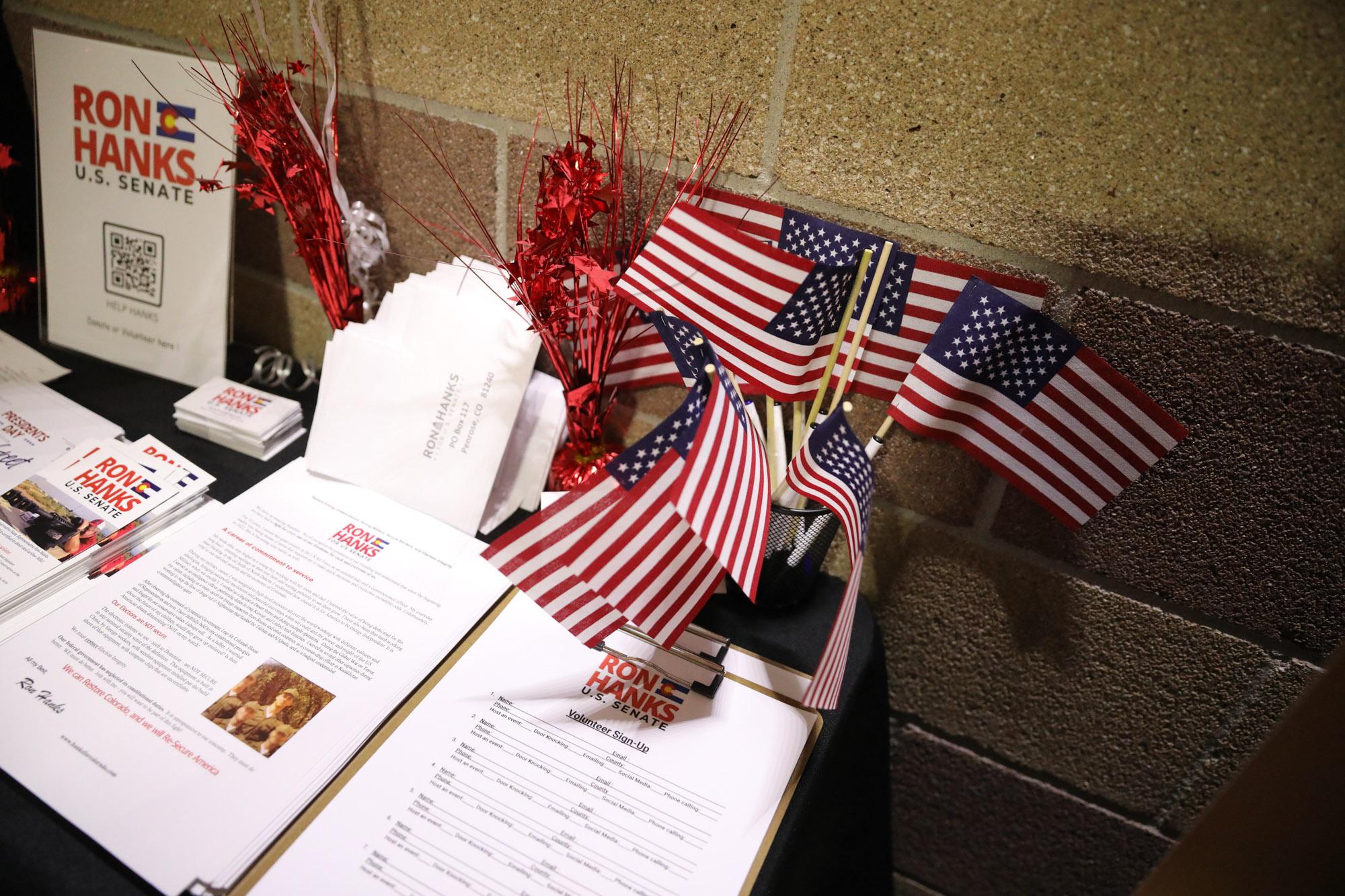
Seven Republicans hope to challenge Sen. Michael Bennet this fall.
Nine Democrats have lined up to take on Rep. Lauren Boebert.
In Colorado’s newest congressional district, there are a handful of hopefuls on both sides.
For many of these candidates, their journey to secure a slot on the June primary ballot starts in earnest this week, in a political process that only Colorado and a handful of other states still use.
Party members at local precinct caucuses select delegates who then go on to other regional and statewide meetings where they vote for which candidates they want to appear on the primary ballot. It takes support from at least 30 percent of the delegates to win a slot.
Caucuses aren’t the only route to the ballot; candidates can also collect enough signatures to petition on. That process comes with the expense of hiring signature-gatherers, though, so for many hopefuls, whose grassroots popularity may outweigh donations to their campaign, or who aren’t in a highly-contested race, caucuses can hold a lot of appeal. (Starting in 2020, Colorado voters chose to get rid of caucuses for presidential primary candidates, but left the system in place for other races.)
Before the pandemic, every county was required to hold its precinct caucuses in person on the same Tuesday night in early March. Assemblies, too, were likewise in-person affairs.
When COVID-19 arrived in Colorado days after the 2020 caucuses, it rapidly scrambled that process, forcing the parties to shift their assemblies to hastily planned virtual gatherings. It took an executive order from the governor to even make that change possible.
Last year, members of the Colorado legislature decided it was time to enshrine some flexibility in the caucus process. SB-250, which was sponsored by Democrats but passed with some Republican votes, gave county parties a five-day window in which to hold their caucuses, and the option to do them virtually, in person, or as a hybrid.
Colorado’s Democratic Party, in particular, has embraced the changes, and many of its county parties are holding virtual or hybrid events this year — with the state assembly on April 9 to be conducted entirely online.
The switch has forced the party to emphasize digital security with its members, especially after a candidate forum for Democrats in the third congressional district race was interrupted by someone posting videos of child sexual abuse.
“We’re in nefarious times,” said Democratic Party chair Morgan Carroll. She said the person was able to get into the Zoom meeting after a participant posted the link on Twitter. “It was traumatic and it was designed to be traumatic.”
Still, Carroll said she is excited about the changes to the process: “The whole goal … was to set up events to make it easier for people to participate.”
Colorado Republicans are holding precinct caucuses throughout the week, but the party’s bylaws currently forbid virtual gatherings, so they’ll all be in-person. GOP executive director Joe Jackson said that the final registration numbers for the meetings aren’t in yet, but he’s heard from party organizers across the state that participation is so far well above the 2018 and 2020 caucuses.
While many counties have already held their caucuses, party members who want to participate can see if theirs is still upcoming, and learn how to attend, on the parties’ websites. The Democrats have a list here, while Republicans can enter their address here for more information about their local caucus.
It's that time again. Here's more of our coverage of the 2022 elections:
- Sen. Michael Bennet is up for reelection. These are the candidates who hope to oust him
- Polis launches re-election campaign in a changed Colorado, and a new political environment
- Mesa Clerk Tina Peters says she’s running for Secretary of State
- Colorado District 8: who’s in the race to represent the most competitive seat in the state?
- Their job is to represent you at the state capitol — but they’re also running for higher office this year








